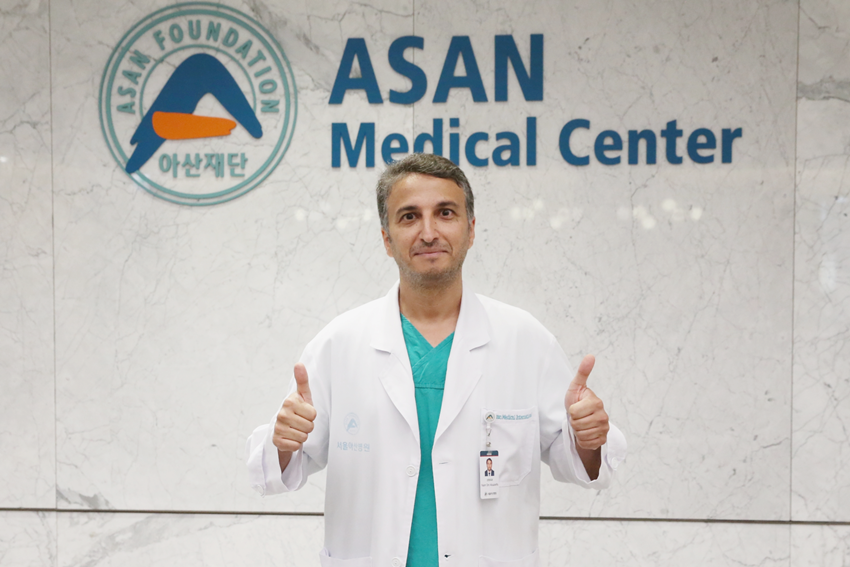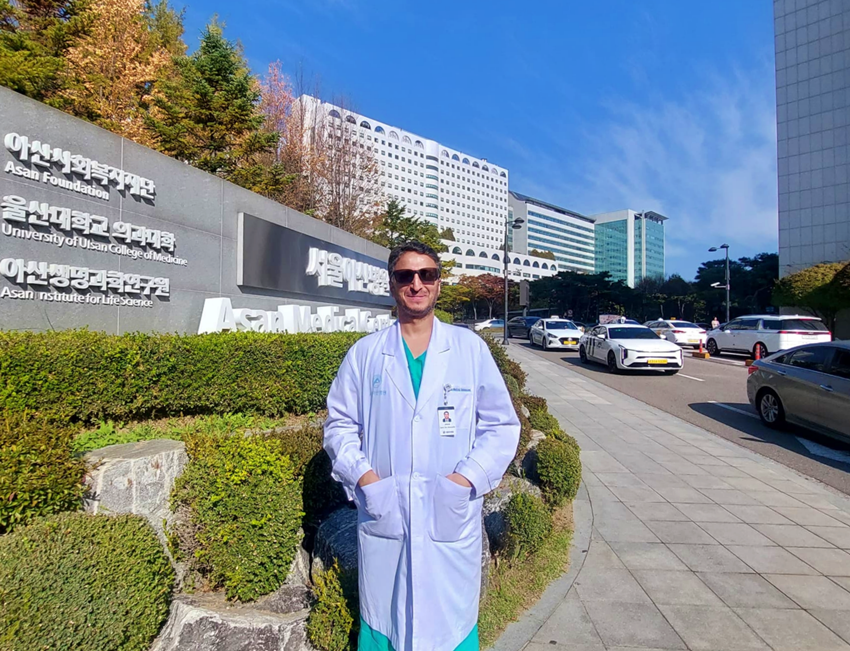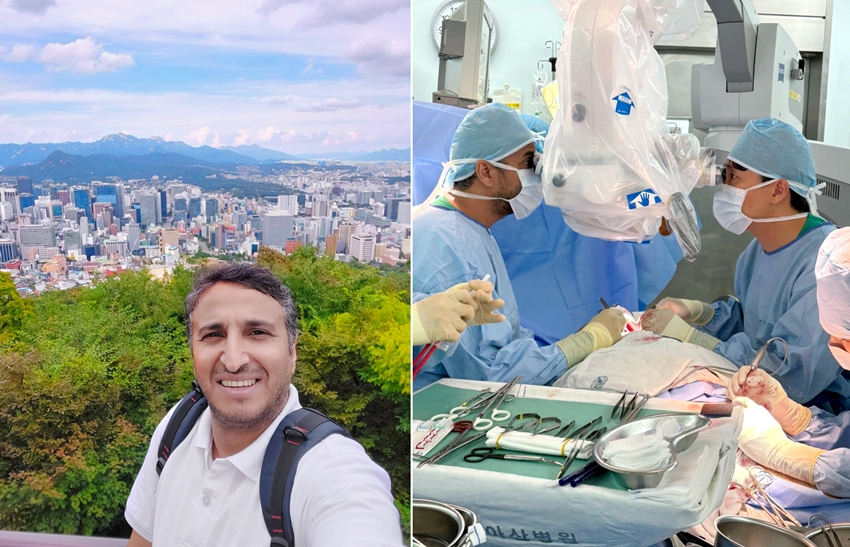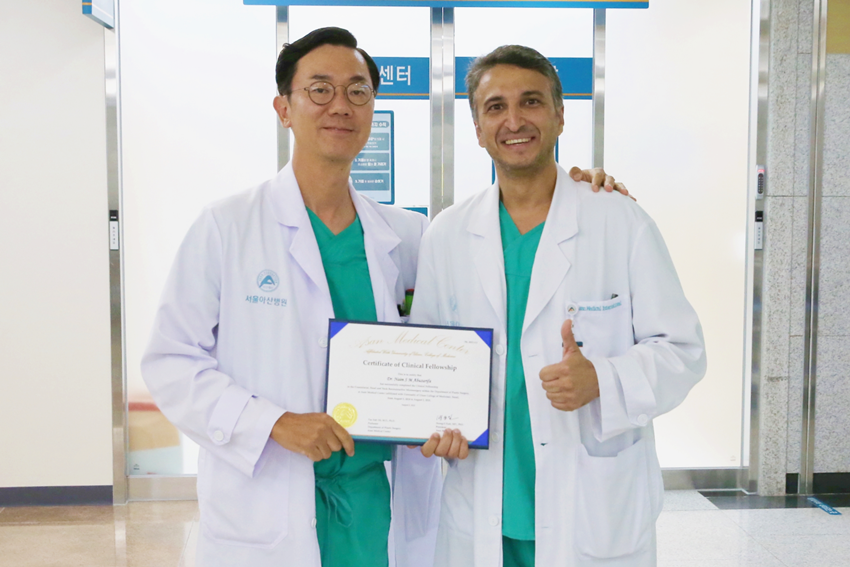-
- Global AMC MENU
- NEWS
- HEALTH
- PEOPLE
- Introduction
“I Want to Bring Back Smiles to Patients in the Middle East”

▲ Naim Sm Abuzarifa, Clinical Fellow from the Department of Plastic Surgery at Asan Medical Center
I have built 15 years of clinical experience in head and neck reconstruction across Saudi Arabia, the United Arab Emirates, Malaysia, and Austria. Wanting to further refine my expertise in microsurgical reconstruction, I applied for a fellowship at Asan Medical Center. Since last August, I have been training for a year in the Department of Plastic Surgery at Asan Medical Center, training in advanced head and neck microsurgical reconstruction, including facial procedures and cleft lip and palate surgery. My goal is to share the complex surgical techniques I learned in Korea with my colleagues in Palestine.

#AtTheHospitalMonument #ThisHospitalIsHuge!
I was recommended to train at Asan Medical Center while in Austria.
During a six-month fellowship in Vienna, I gained significant experience in head and neck reconstruction but had little exposure to facial reanimation surgery. At that time, my supervising professor suggested I consider further training in Korea. In Korea, surgeons transplant more muscles to enable delicate facial movements, and Professor Tae Suk Oh from the Department of Plastic Surgery at Asan Medical Center was highly recommended as a world-renowned expert with extensive experience in this field. Without hesitation, I decided to come to Asan Medical Center.

#AtBukhansanMountain #StayingHealthy 💪🏻
I’ll never forget the patient who regained his smile after surgery.
Early in my fellowship, a middle-aged patient with facial paralysis came for an outpatient visit. When he removed his mask, I was struck by the severity of the asymmetry of his mouth. I had never encountered such an advanced case before. He later underwent free flap surgery performed by Professor Tae Suk Oh and recovered well. A year later, when I saw him again, I was amazed at how natural and radiant his smile had become. It was deeply moving to realize that facial reanimation surgery can give hope and joy to patients who might otherwise live withdrawn lives.
Health management in Korea is truly outstanding!
In Palestine, people generally don’t pay much attention to their health. In fact, the health level of Palestinians in their 30s is comparable to that of Koreans in their 70s (laughs). One day, while walking near the Asan Medical Center, I was overtaken by an elderly man who was walking much faster than me. To my surprise, he was 85 years old! When I asked about his secret, he said he simply made a habit of walking a lot every day. After hearing that, I also began adding more walking into my daily routine. By walking regularly and exercising, I lost 9 kilograms, and the chronic back pain that had bothered me for years disappeared as if by magic. Even after returning to Palestine, I plan to continue the healthy exercise habits I developed in Korea.

#WithProfessorOhOnMyLastDay #ThankYouForEverything!
I am committed to advancing facial reconstruction in the Middle East.
In the region, there are almost no surgeons capable of performing facial nerve or muscle transplantation, and only three or four who can perform microsurgery to connect blood vessels. As a result, many patients requiring facial reconstruction must travel abroad to Korea, Thailand, the United States, or Germany for treatment. In Palestine, the shortage of physicians is worsening due to unstable geopolitical conditions, while the number of patients in need of facial reconstruction continues to rise. With the knowledge and surgical skills, I acquired during my fellowship, I am determined to help patients in Palestine and across the Middle East regain their faces and their smiles.












